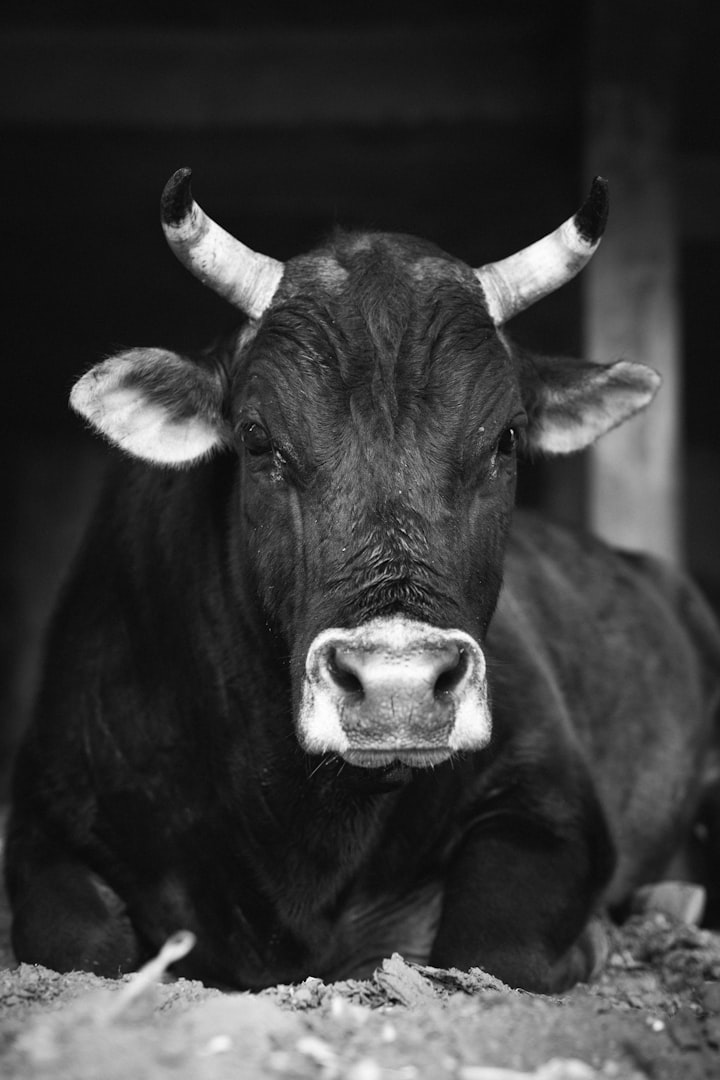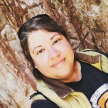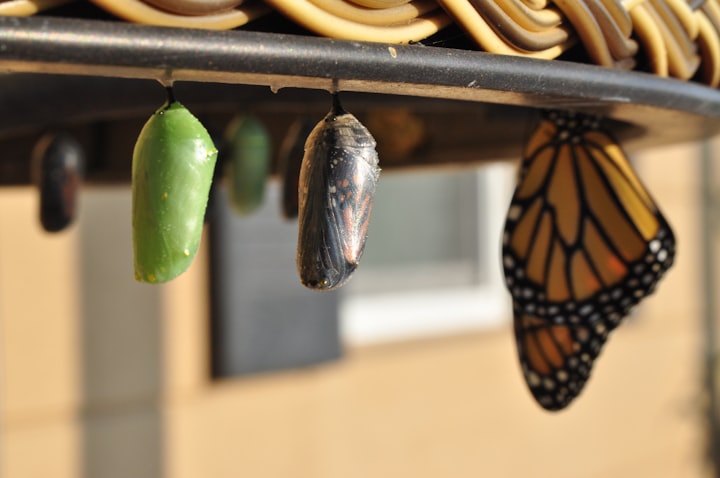Finding Laughter
the sixth installment of Hope Rising

Nathan settled comfortably into life at Esperanza.
There was always plenty to do in a community that was having to build just about everything from the ground up. As an experienced mechanic, Nathan was in high demand and spent most of his time either repairing some machine or another, or training some of the young people in the community who had shown an aptitude or interest in learning mechanics.
Nathan had a lot of skills that at one time had been considered outdated. He was a millennial who had cared little for the digital world, always feeling that he had somehow been born in the wrong century. As terrible as the war had been, this new world he found himself in somehow resonated more fully with his authentic self. Where others were struggling to adapt, he was thriving.
What had once felt more like a self-indulgent hobby that involved restoring old classics or tinkering on obsolete electronics, had become important work that was essential for keeping an entire community supplied with electricity, transportation, communication and valuable tools for farming and building.
Nathan woke early that morning, as he did on most days. It was his turn on the equipment maintenance rotation, a duty that he shared with two others - Kevin and Jessica. The three of them were responsible for doing upkeep and maintaining things in Esperanza like: generators, tractors, small electronics and the few vehicles they had gotten in working order.
Nathan was working on the 1971 International Harvester that was currently the main workhorse for Esperanza’s outdoor farm. This tractor actually had a cab on it and Nathan was particularly proud of the work he’d done to get - and keep - it running. Even the radio was in working order - though as far as Nathan knew only one radio station near DC had been able to get going and it was too far away for a clear signal.
With the skies clearing more and more each day, the community had decided that now was the time to begin preparing some land for outdoor crops and hay fields to help sustain the small herd of cows that they had been able to round up from the surrounding area.The cows had managed to survive on their own and had likely come down from one of the dairy farms that had been in operation through most of the war.
After completing his rounds, Nathan set off for the Tin Can Network station where he had been volunteering for the past four months. The network was helping to reconnect people who had been displaced due to the war. The methods were fairly primitive, relying on ham radios, the few surviving telephones and phone lines, and message boards.
Stations had been established throughout much of what had once been the United States, springing up around communities where the communication devices existed and were actively being used. As the stations became more established, the Tin Canners, as they’d come to call themselves, had worked to build the network by restoring phone lines when possible and by adding to their list of ham radio contacts.
Once a station was established, message boards were set up and word spread quickly that the Tin Can Network stations were the best place to find information - especially if you were looking to reconnect with someone.
Today, Nathan was working at the station alongside Samantha, or Sam, as she preferred to be called. Sam was in her early 20s and like others of her generation, including Nathan’s own daughter, she had not known much beyond the war and its aftermath.
Sam had been a child prodigy of sorts, she had a brilliant mathematical mind and excelled in early aptitude testing for both mechanical and electrical engineering. She had been “recruited” at the age of twelve to work in one of the military’s top robotic and drone weaponry development centers.
Nathan liked and admired Sam, they had developed an easy rapport as they had worked together on restoring old communication devices that, once repaired, were used to help grow the network of stations. Sam had been unfamiliar with the older equipment but had quickly learned all that Nathan could teach her. In turn, she was patiently teaching him to help her make repairs to some of the robotic equipment and drones that she believed she could make useful again - even without working computer or satellite guidance systems.
“I wish I could remember exactly which model this part here belongs to,” Sam said, holding up one of many pieces of various drones they managed to collect.
“Why don’t you just Google it?” Nathan said with a laugh.
Sam looked at him quizzically, “I don’t get it. What’s Google?”
“Before your time, I guess,” Nathan said, thinking that it was odd to imagine an entire generation that would look back to a past that had more access to technology than the present or foreseeable future.
As he did every time that he took a shift at the station, Nathan sent out two more messages along the network. He had mapped out several likely routes that Hannah might take as she traveled East from Missouri and he was methodically delivering his message along those routes. His message was simple: “Seeking Hannah or Maria Withers, contact Nathan Withers located in Esperanza, Virginia (Station VA 412).”
Nathan walked the five miles to the station and the five miles back to Esperaza, which was thankfully downhill on the return trip. As he came out of the final curve leading down into the valley and the entire community was laid out before him, he noticed that the cows had not only managed to knock down part of the fence but they were headed straight toward the newly planted fields.
Nathan broke into a run down the hill, getting to the barn as quickly as possible. He spotted Manny and a group of teenagers that worked with him on the farm.
“The cows are loose!” Nathan called as he jumped on one of the two working four-wheelers.
“We’ll be right behind you!” Manny shouted back, waving the others to follow.
Two of the boys had just been working one of the horses in the round pen and they quickly saddled her back up. Jason was the better rider of the two, so he hastily mounted and headed out at a gallop.
Though certainly a domesticated breed of cattle, these particular cows had spent much of their lives surviving on their own and were resistant to the idea of human intervention. That resistance showed up from time to time when the lead cow would decide it was time to move on.
They had come to call this cow, Big Bertha. Big Bertha was generally calm, but she was also a force to be reckoned with. Manny and the others that worked the farm regularly, had learned quickly to give her the respect she deserved.
The group approached slowly, not wanting to spook the cattle or cause them to run away. They fanned out to establish a perimeter, with the two four-wheelers at the outer edge, one of the teenagers was now on foot and Jason was covering the center from horseback.
Out of nowhere, Jason took it upon himself to whoop loudly and ride straight for Bertha. As if laughing at his impudence, Bertha gave a loud snort and tossed her impressive horns. Jason’s horse promptly came to a stop, causing Jason’s forward momentum to carry him over the horse, landing him uncomfortably close to Bertha’s large hooves.
Nathan could hear Manny laughing from across the field as he leisurely made his way to help the humiliated youth to his feet.
“You think this is a rodeo, son?” Manny asked while still not able to shake the grin on his face.
“Stand back and let me show you how a real man gets it done!” he said as he shook the bucket he was carrying in his right hand. “C’mon, Bertha! This has been fun, but what do you say let’s get this herd back in the pasture?”
Manny reached out and gently pulled her left horn, turning her head back in the direction from which they came. She tossed her big head again, but followed as Manny led her back toward the broken fence. The herd followed their leader, and the men took up the rear to make sure there were no stragglers.
As they were repairing the damaged fence, Nathan paused for a moment and said, “That was pretty fricken’ impressive, Manny, how’d you do that?”
“You know me, Nate! I’ve always had a way with the ladies!” Manny said with a wink.
“No, seriously,” Nathan said, “how on earth did you do that?”
Manny laughed, “Never could get anything past you, brother. Ever since that last time she got them all out, I’ve made a point of coming out here every morning and feeding her out of this bucket right here. I figured it might be useful, you know? If she liked me and wanted to get food from me, I might be able to convince her to come back more easily.”
“And what do you know?” he laughed, “it actually worked!”
The men returned to the barn, a little dustier, a little thirstier, but with smiles on their faces.
“I feel the need for some boot stompin’!” Manny said while inserting his favorite cassette tape into the boombox that Esperanza’s chief electrician, Kevin, had wired to speakers installed throughout the barn.
“C’mon, Manny, you actually like that cowboy crap?” one of the men shouted to him over the music at full volume.
By way of answering, Manny kicked his booted feet into a shuffle across the barn floor and belted out as the chorus started, singing something about bulls and mud. Cheers went up around the room and others joined Manny on the impromptu dance floor.
Nathan smiled at his old friend. Manny had always been gifted that way, able to bring his own brand of good cheer into even the dreariest of situations; he could spark some seriously outstanding parties when the mood was already leaning toward celebratory.
It had been long enough since Nathan had celebrated and he took a moment to enjoy the experience. He soaked up the laughter and music, he mirrored back the smiling faces and friendly waves, he relished the sense of community and camaraderie.
When he was lying in his bunk that night, Nathan reflected on something his wife had once told him. It was shortly after his father had died and Maria, always the therapist, had explained her theory on recovery.
“Recovery is a journey, not a destination,” she had said. “It’s a journey of discovery - think of it as a treasure hunt - and along the way you will find things that may seem lost to you right now. And you will find things that will help make your journey easier.”
“What kind of things?” he’d asked.
“Well, it’s different, unique for everyone and the order may be different for some people, but you will find friendships that help you along the way. Sometimes it’s old friends, but sometimes your grief will bring you to new friends. You’ll find connections with people through your shared experience. You’ll find purpose - purpose in the grief, purpose in the recovery.”
“You’ll find that hope rises like the sun lighting your path. And along the way,” she said with a soft smile touching her lips, “you’ll find time for the small pleasures. You’ll find time to smell the flowers again. And one day, when you least expect it, you’ll find laughter - true, genuine laughter that springs from joy. You’ll find peace and you’ll find that your journey takes you to new heights and new beginnings.”
“Finding laughter,” Nathan thought as he drifted off to sleep. She always did have to be right!
About the Creator
LeeAnna Tatum
Writer, entrepreneur, animal-lover, gardener, artist and traveler. I am passionate about leaving this world a better place when I'm gone then it was when I got here!






Comments
There are no comments for this story
Be the first to respond and start the conversation.